No one knew exactly what to expect from central government officials in Beijing when Hong Kong’s Occupy protest movement erupted on September 28, 2014 and went on to blockade major city thoroughfares for 79 days. The last of the encampments were not cleared until mid-December.
Since Hong Kong’s pro-Beijing media remained in full fighting mode throughout the 2013-14 preparations, during the 79 days, and ever since, it can be safely assumed that Beijing officials were not pleased.
But by and large, Hong Kong’s one-country, two-systems way of life was allowed to play itself out without any direct observable Beijing intervention.

The Hong Kong government ignored protesters’ demands for a re-think of Beijing’s restrictive August 31, 2014 electoral reform mandate that triggered Occupy; Hong Kong’s police force handled all the provocations on its own; and the protest eventually wound down. A series of high-profile arrests were made but mostly not followed up with court action. No one seemed in any great hurry to exact retribution.
In this way, after Hong Kong legislators vetoed the offending electoral reform proposal in June 2015, political life returned more or less to normal.
A series of local elections followed. They began in late 2015, with three in 2016, and the last in March this year. Throughout all that time, the Hong Kong government, conservatives, pro-Beijing loyalists, and the pro-Beijing media did everything they possibly could to discredit everything and everyone associated with the Occupy protest movement.
In 2015, Zhang Dejiang, who is currently the top-ranking Beijing official responsible for overseeing Hong Kong affairs, enjoined loyalist politicians to be sure and win five more seats in the next Legislative Council election. The extra seats would secure the super-majority needed to pass the electoral reform proposal that Occupy supporters were able to veto and block with their slim one-third minority.
See also: Huffing and puffing and political muscle-flexing: Beijing’s learning curve with Hong Kong
But such “soft-power” ordinary Hong Kong-style politicking didn’t work. Zhang Dejiang’s wish did not materialise.
Conventional conservative wisdom had it that the voters would punish Occupy sympathisers and pan-democratic politicians for all the disruption they had caused. All including both moderates and radicals were represented in the June 2015 Legislative Council vote to veto Beijing’s electoral reform mandate.
Yet voters rewarded them all, including many young Occupy generation candidates. In all the post-Occupy elections, pro-democracy candidates did better than anyone expected.
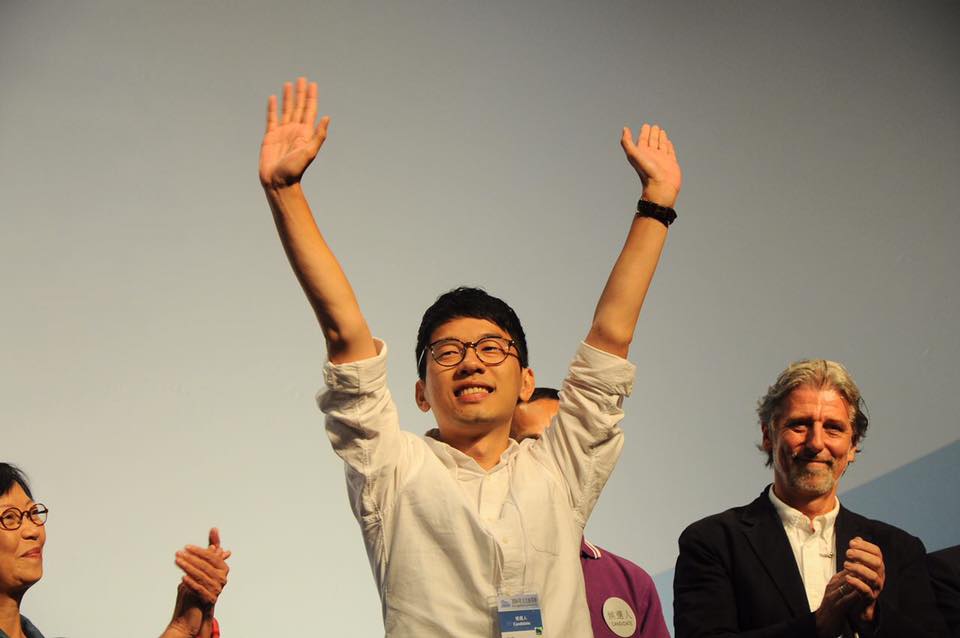
Whether the official laid-back approach would have continued indefinitely in the absence of what happened next will doubtless never be known. Probably it would not have continued indefinitely, because the resolve of all pro-democracy candidates seemed to have been strengthened by arguments the younger generation brought with them from the barricades and the whole Occupy experience.
Many had concluded that no matter how reasonable, righteous, and self-evident Hong Kong’s demands might be, Beijing officialdom was not listening and would never listen. The next step then was to demand autonomy, the genuine kind that Hongkongers thought they had been promised by all the handover guarantees Beijing had offered before 1997.
People were beginning to think maybe the promises had not been made in good faith after all, but only to ease the transition from British to Chinese rule.
See also: Britain flags concern about confidence in Hong Kong’s system
In any case, scattered among this angrier disillusioned younger generation’s arguments are some now demanding not just “genuine” autonomy, but self-determination, and even independence. Probably it was the link between such newly defiant ideas and the voters who repeatedly rewarded them in 2015, 2016, and 2017 that set alarm bells ringing in Beijing.
Because that link points directly to Beijing’s instinctive fear of popular elections.
To grant power to elected politicians is to acknowledge popular sovereignty, and in Beijing’s eyes there can be no greater heresy. Sovereignty resides in Beijing – in the central government and the Chinese Communist Party as representative of all the people – not in any popular mandate bestowed by ordinary voters on elected politicians and their representative assemblies.
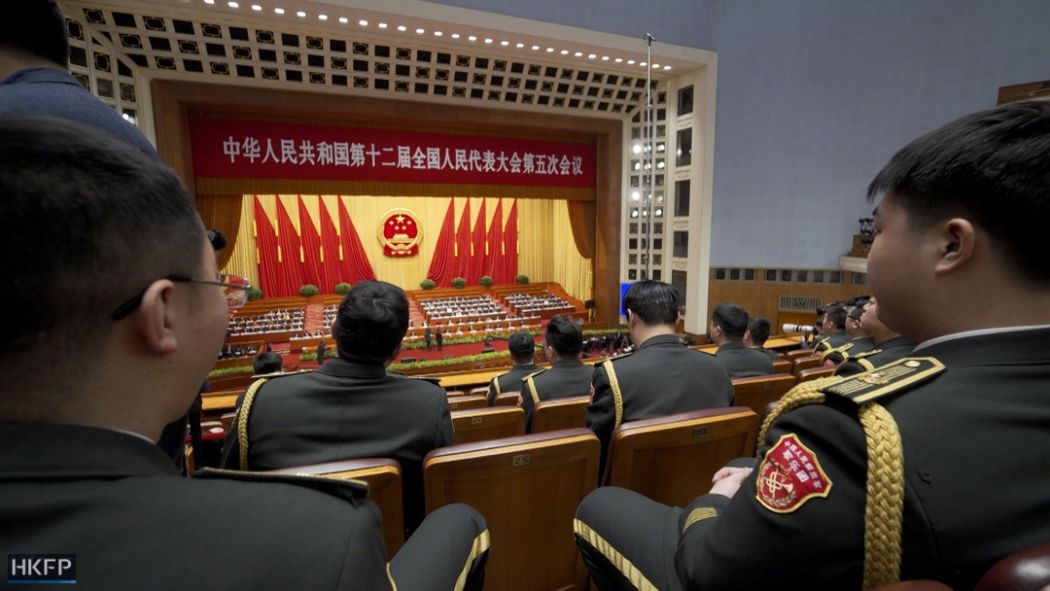
Hence Beijing’s decision to try and disqualify Hong Kong voters by overturning their choices and asking them to try again.
If all goes according to current official plans, a total of 10 legislators elected in September 2016 will lose their seats. That will give Zhang Dejiang more than enough leeway to try and win those five extra votes he needs to pass Beijing’s August 31, 2014 electoral reform mandate.
The excuses whereby the 10 might lose their seats: oath-taking indiscretions plus disruptions during Occupy – with Hong Kong courts serving as the means of finessing this intricate manoeuvre. The implications are serious because they mean further erosion of Hong Kong’s political autonomy and judicial independence – despite all the incantations to the contrary.
Oath-taking and disqualification
The oath-taking saga underscores the logic of this conclusion.
Several Occupy generation candidates won seats in the September 2016 Legislative Council election. So did some like-minded pre-Occupy democrats. A total of 15 – by Beijing reckoning – used the occasion of their swearing-in on October 12 to demonstrate disloyalty by improvising their oaths.
Beijing officials moved with more speed than usual in such matters and issued, on November 7, an Interpretation of the Basic Law’s Article 104. This concerns the matter of oath-taking.
Beijing’s interpretation was wide-ranging. It said the oath must be taken word for word, solemnly and sincerely, and followed up ever after by like-minded behaviour under pain of mortal sin – meaning in this case disqualification as Legislative Councillors.
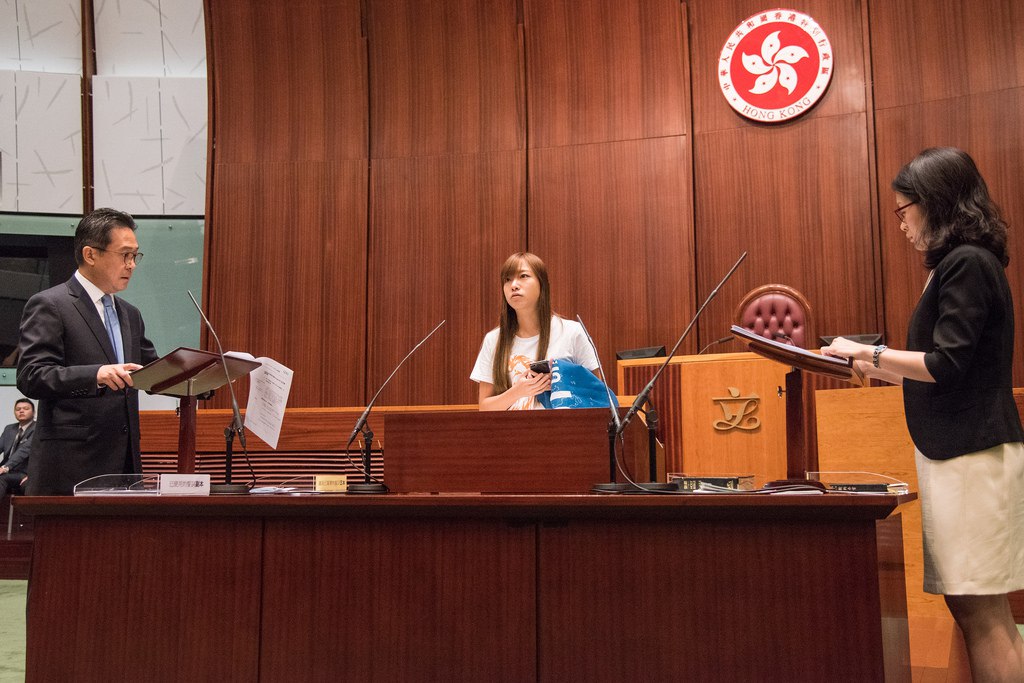
The swearing-in ceremony itself had occurred on October 12. Two new legislators were especially offensive in their choice of words. But following customary procedures, the two were told they could retake their oaths, which they planned to do.
It was not to be. By the next council sitting on October 19, conservative forces had been mobilised. Their legislators left the chamber. Without a quorum the session could not continue so the oaths could not be retaken.
Hong Kong’s Chief Executive Leung Chun-ying meanwhile applied for a judicial review asking the Hong Kong court to decide if the two could be disqualified under Hong Kong law for the manner in which they had improvised their oaths.
See also: HKFP’s coverage of the Legislative Council oath-taking saga
A Hong Kong judge ruled their behaviour warranted disqualification. But before he could issue his judgement, Beijing preempted the Hong Kong court by issuing a judgement of its own. This came in the form of an interpretation by the Standing Committee of the National People’s Congress (SCNPC) on November 7.
Beijing thus added, via its interpretation, the new conditions that inspired official reconsideration, retroactively, of all that had been said by all legislators during the October 12 swearing-in ceremony.
Eager to fulfil its duty, the Hong Kong government then asked the Hong Kong court for permission to disqualify four more new legislators. The request was for separate judicial rulings to be based retroactively on Beijing’s November 7 interpretation. These judgements have yet to be issued.
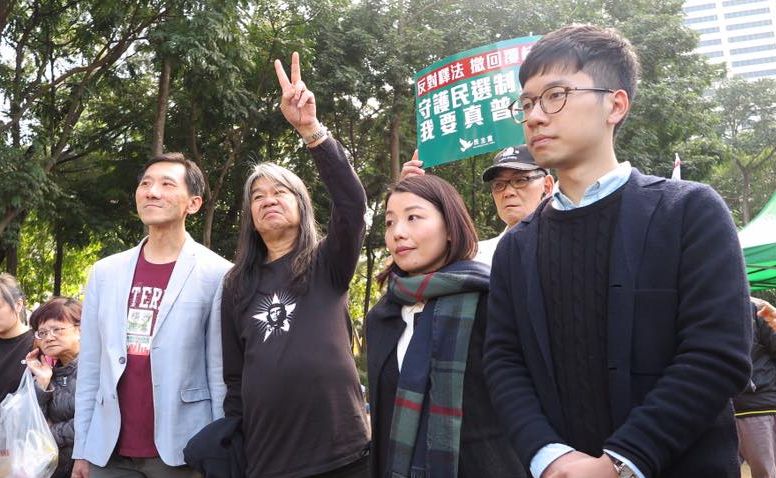
As for the first two legislators, they are currently awaiting their day before Hong Kong’s Court of Final Appeal.
But that court only agreed to give them one last hearing on special public interest grounds. The two had already been told, on appeal, by a three-judge panel that their cases were without merit because the Hong Kong courts are powerless to defy a ruling from Beijing that comes down via the SCNPC. In fact, the appeal judges seemed quite irritated that the defence counsel should have presumed to suggest otherwise.
Veteran democrat Martin Lee Chu-ming is now helping with the defence. But given the judgements to date, there seems little reason to think the four legislators will fare any better than the first two, or that the latter will receive an answer from the Court of Final Appeal any different from all those they have received so far.
The arguments from the three-judge appeal panel suggest that Hong Kong courts have no desire to assert any independence on this matter.
Further disqualifications
Not satisfied, however, the Hong Kong government is still searching for more offending post-Occupy legislators to disqualify and has just found a seventh. He is university lecturer Cheng Chung-tai, who received his summons on April 10.
As a Beijing University graduate, Cheng is a rarity among Hong Kong legislators. Ironically, he is also among the most radical. Officials are constantly exhorting Hong Kong young people to visit their Motherland but in his case it didn’t have the hoped-for effect.
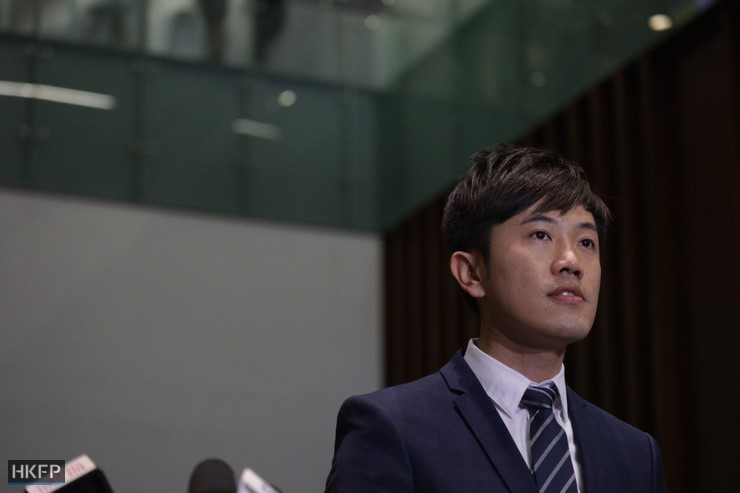
He took his oath on October 12, and may still have a case to answer on that score because of some extra words he added. But government lawyers have found additional grounds that seem more likely to produce the desired result.
At the subsequent council sitting on October 19, when the pro-establishment councillors vacated their seats to prevent a quorum, Cheng used the empty time to move about the chamber where he proceeded to dishonour the Chinese national and Hong Kong regional flags.
This he did by turning upside down the miniature replicas that some pro-Beijing legislators had placed in holders on their desks to demonstrate their patriotism.
For this act of disrespect, Hong Kong’s Justice Department is asking the court to rule on whether Cheng has violated Hong Kong’s law against flag desecration. He was summoned by phone informing him of the pending prosecution but refused to turn himself in voluntarily.
That’s why he was visited by 14 Criminal Investigation Division officers who escorted him to Hong Kong’s central police station for a late night check-in where he was formally charged and released on bail. Under Hong Kong law, flag desecration is punishable by a fine and prison sentence of up to three years.
See also: Hong Kong lawmaker arrested and charged after flipping flags at legislative meeting
Aside from his October 12 verbal indiscretion, Cheng Chung-tai is actually now in double jeopardy due to another aspect of the oath-taking saga. Under Hong Kong law, individual voters can challenge the qualifications of legislators representing their constituencies.
In this case, one voter is asking for a judicial review based on Beijing’s November 7 oath-taking interpretation that the government is using to try and unseat the others.

This voter lives in the New Territories West constituency and is asking the court to disqualify two of its legislators. One is Cheng, the other is “King of Votes” Eddie Chu Hoi-dick who received more votes than any other candidate in the September 2016 election. He read out his oath properly, but used the occasion to shout out “democratic self-determination” and “tyranny must die.”
Altogether eight Legislative Councillors elected in September 2016 are now in danger of disqualification over their oaths. The government has already budgeted HK$320 million to cover costs for the coming by-elections that will be called to fill the anticipated vacancies. The eight are:
- Sixtus Baggio Leung Chung-hang, New Territories East
- Yau Wai-ching, Kowloon West
- Lau Siu-lai, Kowloon West
- Nathan Law Kwun-chung, Hong Kong Island
- Edward Yiu Chung-yim, functional constituency, architecture, surveying sector
- “Long Hair“ Leung Kwok-hung, New Territories East
- Cheng Chung-tai, New Territories West
- Eddie Chu Hoi-dick, New Territories West
Alleged crimes and possible punishments
And there are more. Cheng Chung-tai is the only legislator who has actually been charged with an offence that carries a possible prison sentence. But two other legislators have just been charged with such offences – stemming from actions two years ago during Occupy.
Hence these two are also now at risk of losing their Legislative Council seats, making for a grand total of 10. The two latest possibilities:
- Tanya Chan, Hong Kong Island
- Shiu Ka-chun, functional constituency, social welfare sector
These two are part of the other official shoe to drop in the government’s slow-motion tidying-up exercise designed to do as much damage as possible to what Beijing calls Hong Kong’s new “separatist” tendencies.
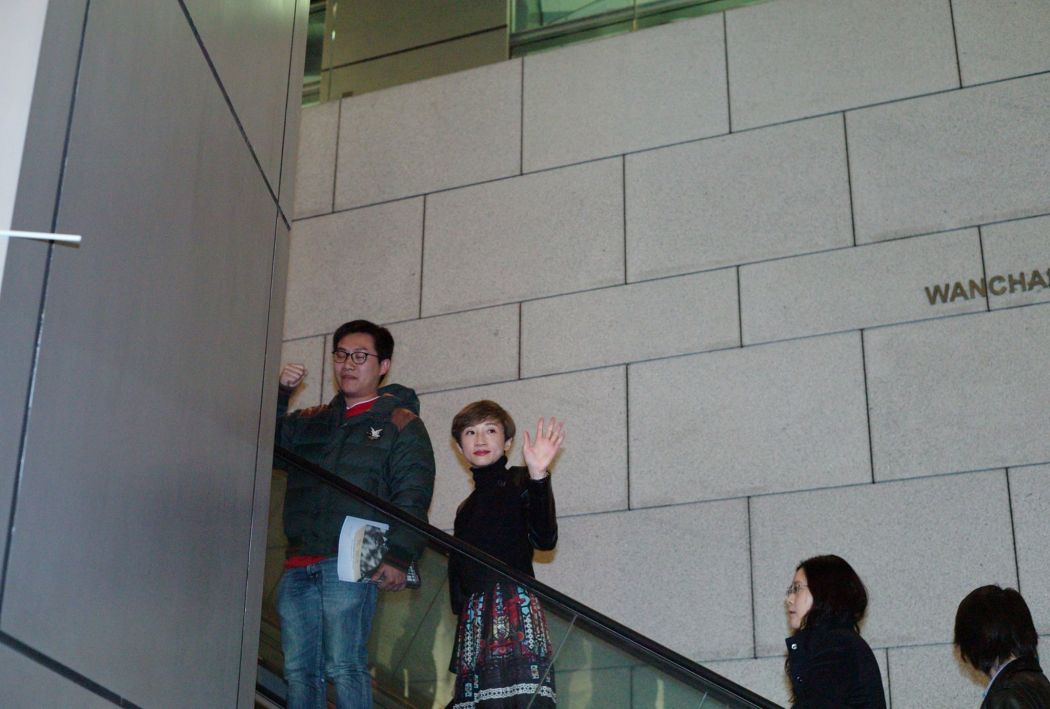
The Occupy arrests were timed for obvious political effect coming as they did just one day after Hong Kong’s long post-Occupy 2015-17 election cycle finally came to an end. The Election Committee formalities whereby Carrie Lam secured her endorsement as Chief Executive were concluded on March 26. She was Beijing’s preferred candidate to replace the much disliked loyalist Leung Chun-ying.
The very next day, nine Occupy leaders and activists were formally charged.
About a thousand people were arrested for various infractions during the 79-days of Occupy and some 200 of those cases have already proceeded through the courts. But the nine dramatically charged on March 27, were among the 30+ leaders and activists who were arrested at the end, either just before or just after the last of the barricades came down in December 2014.
See also: Police crack down on Hong Kong pro-democracy leaders, a day after leadership election
These nine include the three original founders of Occupy Central: University academics Benny Tai Yiu-ting and Chan Kin-man, and Reverend Chu Yiu-ming. Besides the two legislators, the others are two former student leaders, and two politicians.
At the time of their arrest two years ago, they were all told to expect charges associated with unauthorised assemblies: participating in, organising, inciting, and police obstruction. They were also told that formal charges would not be announced for at least three months.
Government prosecutors obviously needed more time, which they used to search the archives for other ordinances that might carry more weight than those the defendants had been led to expect.

Bottom row: Lee Wing-tat, Shiu Ka-chun, Tanya Chan, Eason Chung.
The three co-founders are each being charged with three public nuisance offences: conspiring to commit, inciting others to commit, and inciting others to incite others. Each charge carries a maximum penalty of seven years imprisonment. The other seven defendants are being charged with one or two of the public nuisance incitement offences.
Nor is that all. Soon after Beijing issued its November 7 interpretation of Basic Law Article 104 on oath-taking, a political study session was held across the border in Shenzhen to help generate more publicity for all these unfamiliar mainland-style procedures. Among the speakers was retired Beijing official Chen Zuo’er, a hardliner long associated with Beijing’s Hong Kong portfolio.
Chen used the occasion to blast Hong Kong’s judiciary for using the law as a political tool and also for the soft wrist-tapping sentences judges were handing out to political activists. He said there had been many such cases. They carried national security implications because they challenged Beijing’s authority.
Yet Hong Kong’s judges seemed still not to have grasped that point. Perhaps now they have because sentences have grown noticeably stiffer since then.
A few months before Chen’s tirade, the three student leaders who actually precipitated Occupy walked away with the mildest of sentences. The three were Joshua Wong, Nathan Law, and Alex Chow. They had led students in an attempt to storm a recently restricted public area at the Legislative Council complex on the night of September 26.
See also: Hong Kong Occupy activist Joshua Wong sentenced to 80 hours community service
All were convicted of unlawful assembly offences. But the judge cited their youthful idealism in mitigation and let them off with community service and a suspended sentence.
Now, in the wake of the oath-taking saga and all the tough official Beijing talk, Occupy leaders find themselves unexpectedly charged with offences that carry seven-year prison terms.
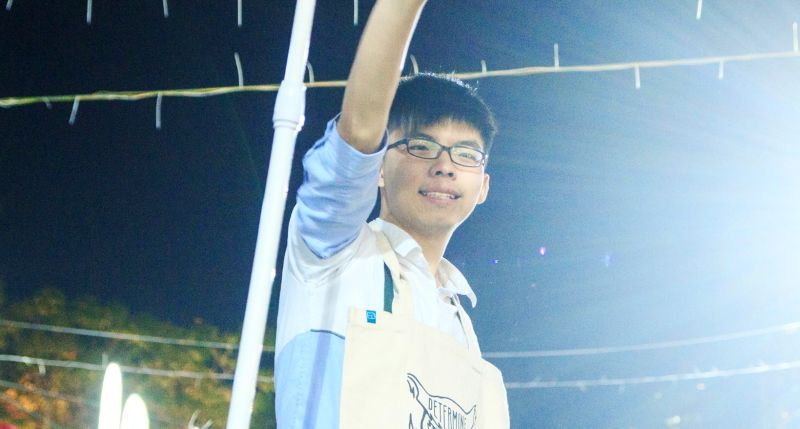
Meanwhile, trials resulting from the February 2016 Lunar New Year violence are concluding.
The violence was provoked by post-Occupy Hong Kong autonomy protesters – or separatists as Beijing calls them. It was only a one-night affair on February 8-9, with little property damage but there were many arrests and many police injuries.
One rioter has just begun his nine-month sentence for throwing water bottles at the police and resisting arrest. Three rioters including two university students have received three-year prison sentences.
The harshest sentence so far has been given to a university computer technician found guilty of setting fire to a taxi. He has just been jailed for four years and nine months… all delivered with stern homilies from the bench and triumphant editorials in the pro-Beijing press.
